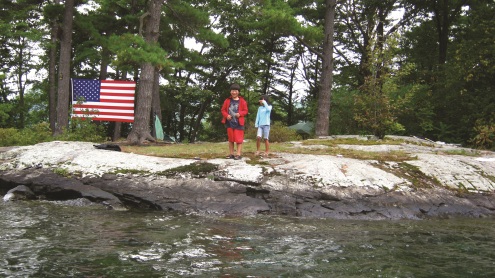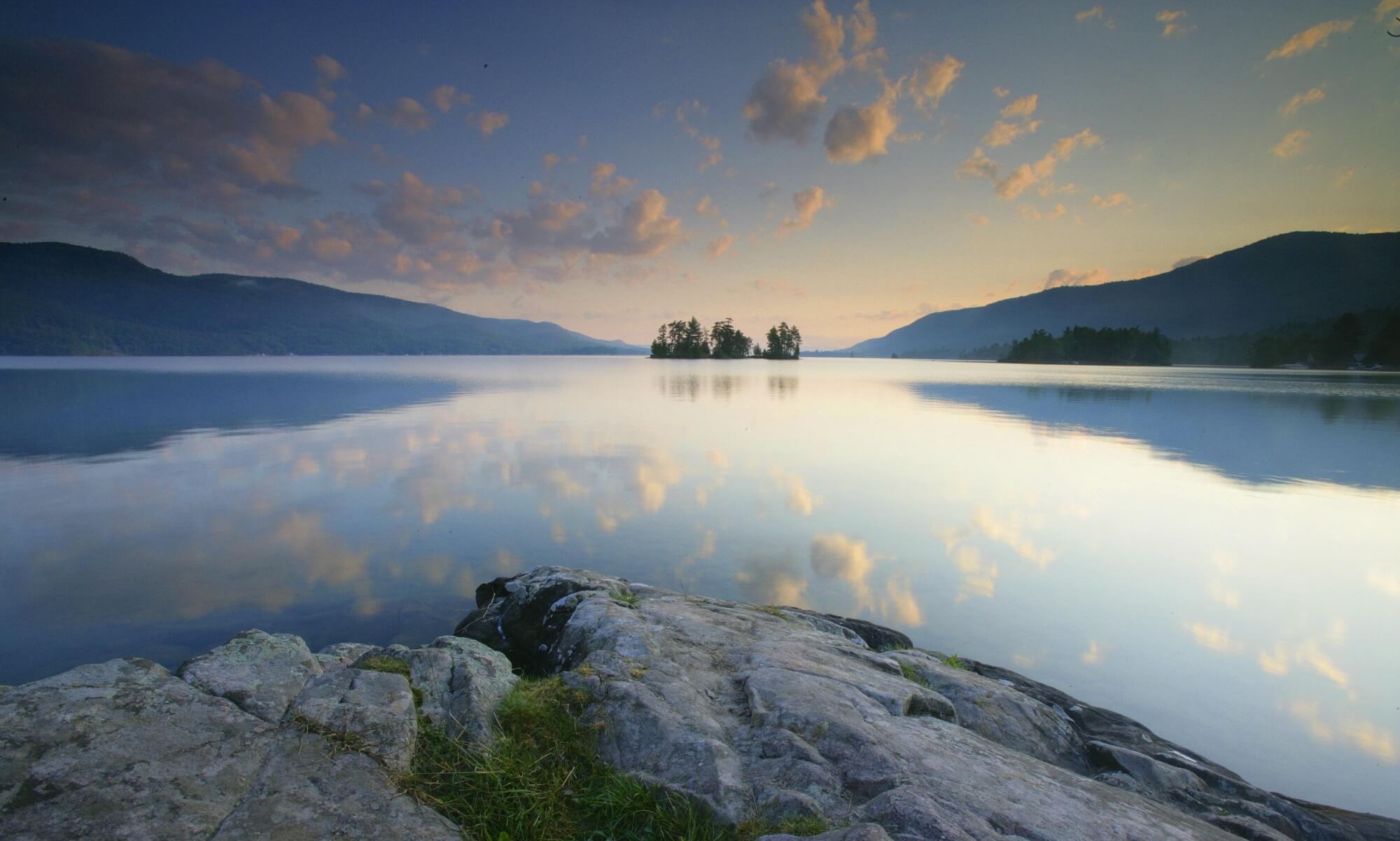
Young campers enjoy Floating Battery Island, one of the campsites in the Narrows Group of Lake George.
Due in large part to public pressure and efforts made by the Lake George Association, the Department of Environmental Conservation (DEC) has reversed an earlier decision to discontinue trash collection centers for the Lake George islands in 2011.
The DEC has decided to raise campers’ fees to offset the costs of operating the trash collection centers. In 2011, in-state campers will pay $28 per night and out-of-state campers will pay $33. Rates in 2010 were $25 a night for all campers. These new rates and the reversed decision are not yet reflected on DEC or camp reservation websites.
Earlier this summer the DEC announced that, beginning in the 2011 season, it would no longer provide trash removal services for people camping or picnicking on the Lake George islands. Due to state budget problems, the DEC announced it would be implementing a “carry in, carry out” policy for the islands. At the time, DEC spokespersons said that the decision was final and non-negotiable.
The LGA responded immediately, with Executive Director Walt Lender issuing a letter to DEC Commissioner Pete Grannis. In that letter, and corresponding letters to the editors of local newspapers, Lender encouraged the DEC to consider alternatives and to meet face to face with Association members, local elected officials, and other local stakeholders to gain a better understanding of the history and unique local situation regarding these campers and campsites. With pressure mounting from State Senator Betty Little, Assemblywoman Teresa Sayward, local officials and other groups, the DEC agreed to meet.
The decision deeply concerned the LGA, as trash left behind at campsites, floating in the water, or piling up at lakeside marinas, can be highly detrimental to both the lake’s water quality and to its beauty. Buck Bryan, LGA past president, in an interview with Albany’s Times Union, shared his memories of what it was like before the state started garbage collection on the lake in 1955, and it wasn’t pretty. There was garbage all around on the sites, he said. Marina owners and other shoreline business owners are also well aware of the severe problems that occur at their businesses when state garbage collection is inadequate: garbage overspills from their small private containers.
“The solution really came out of the meeting that Senator Little hosted in Bolton,” said Walt Lender. “Then Betty and Assemblywoman Sayward went back to Albany and did some heavy lifting. We’re very pleased that the service will continue, but we hope campers will plan accordingly and keep their trash to a minimum,” he said.
As has been the case for over a decade, 2011 island campers will be required to remove all of their trash and recyclables from their individual campsites, and will have the option to take it by boat to one of three garbage collection centers: Uncas Island, Narrow Island or Long Island. Campers can stay on the islands as long as two weeks. Without these collection centers in place, the responsible camper would either have had to store up to two weeks of garbage at their campsite or on their boat, or they would have had to interrupt their vacations mid-week, boat back to the shoreline, get in their cars, and drive their garbage to a town landfill — not the easiest task for out-of-town campers not familiar with local landfill locations. A more likely scenario would be that more campers would either leave their trash behind at the campsite, where it could easily flow into the Lake, or would dump it in the private dumpster of a marina or other a shoreline business, causing an unfair burden to these businesses.
